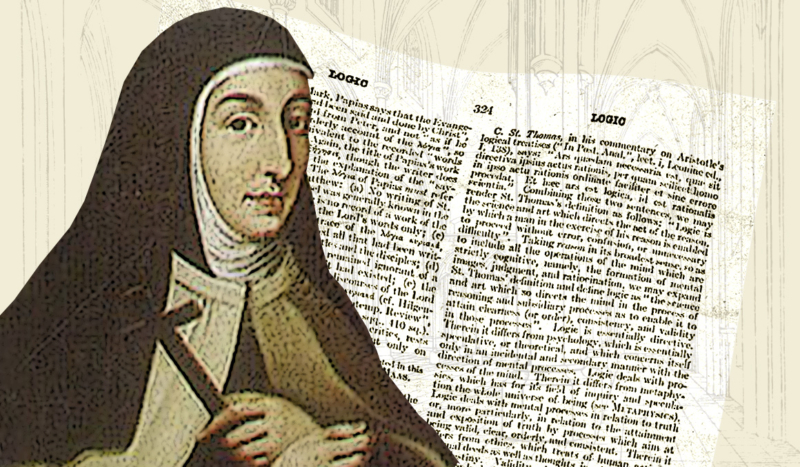
CV NEWS FEED // Pope Francis approved a miracle attributed to the intercession of the Carmelite sister Venerable Ann of Jesus, a friend of St. John of the Cross and companion of Carmelite reformer St. Teresa of Avila.
On December 14, the feast of St. John of the Cross, the pope signed a decree that recognized a miracle attributed to Ann’s intercession, furthering her path to beatification. Ann was born in Belgium in 1545 and died in 1621. Several miracles occurred after Ann’s death and she was declared Venerable in 1878.
Ann was orphaned at nine years old and lived the rest of her childhood with her relatives. When she was 25, Ann entered the convent of St. Teresa at Avila, Spain.
According to a biography of Ann from Catholic Answers, when Ann was “still a novice, St. Teresa called her to Salamanca (Spain) and placed her over the other novices. Ann made her profession on October 22, 1571, and accompanied St. Teresa in 1575 to—the foundation of Beas, of which she became the first prioress.”
Later, Teresa sent Ann to establish another convent in Granada, Spain. Teresa died in 1582. In 1586, Ann had St. John of the Cross’ help with founding a convent in Madrid. Ann also worked to gather many of Teresa’s writings for publication.
Ann experienced difficulty in Madrid under her superior Nicholas a Jesu-Maria, also known as Doria. Doria “sought to guard the nuns against any relaxation,” and accomplished this “by rendering the rules stringent and rigid in the extreme, and by concentrating all authority in the hands of a committee of permanent officials (consulta).”
During this time Ann worked to preserve Teresa’s work of the nuns’ constitution, as it was at risk because of the newer principles of the consulta. Ann even appealed to Pope Sixtus V in 1590 to receive an Apostolic Confirmation. The complex situation was eventually resolved in 1591 when Pope Gregory XIV took a “middle course” between the two sides. According to Catholic Answers,
Doria resumed the government of the nuns, but his first act was to punish Ann of Jesus severely for having appealed to the Holy See; for three years she was deprived of daily communion, of all intercourse with the other nuns, and of active and passive voice.
After her punishment had ended, Ann went to Salamanca in 1596, where she was a prioress until 1599. John of the Cross had died in December of 1591.
“Meanwhile,” stated Catholic Answers,
a movement had been set on foot to introduce the Teresian nuns into France. Blessed Mary of the Incarnation, warned by St. Teresa and assisted by de Bretigny and de Berulle (q.v.), brought a few nuns, mostly trained by St. Teresa herself, with Ann of Jesus at their heads, from Avila to Paris, where they established the convent of the Incarnation, October 16, 1604.
Such was the number of postulants that Ann was able to make a further foundation at Pontoise, January 15, 1605, and a third one on September 21 at Dijon, where she took up her abode; other foundations followed.
From 1607-8 Ann founded Carmelite convents in Brussels, Louvain, Mons, and played a role in founding convents at Antwerp, and at Krakow in Poland.
Ann also eventually “obtained leave from the pope for the Discalced Friars to establish themselves in Flanders. The Spanish Carmelites having decided not to spread outside the Peninsula declined the offer, but the Italian congregation sent Thomas a Jesu with some companions, who arrived at Brussels, on August 20, 1610,” Catholic Answers explained:
On September 18, Ann of Jesus and her nuns, in the presence of the nuncio, rendered their obedience to the superior of the Italian congregation. She remained prioress at Brussels to the end of her life.

